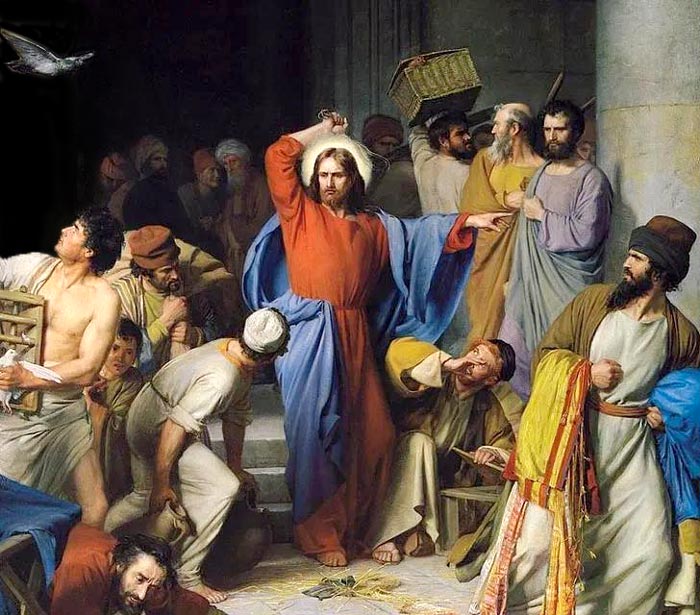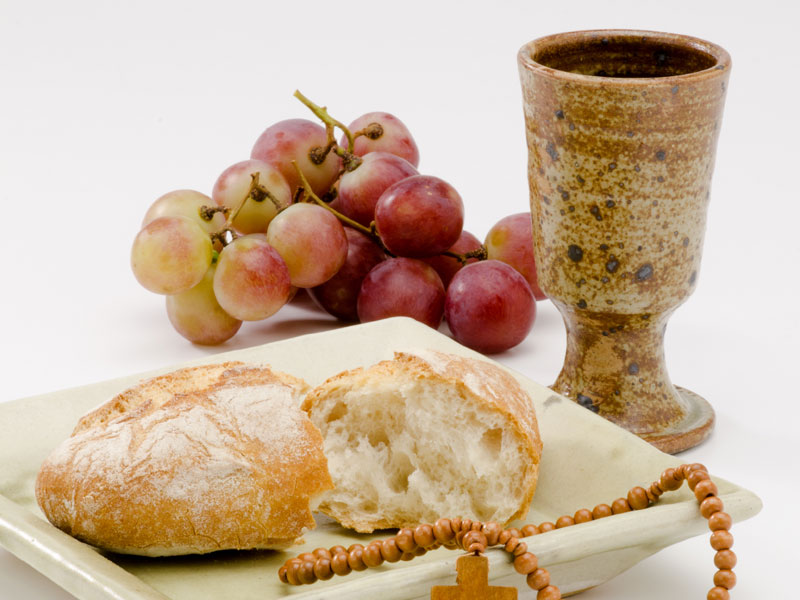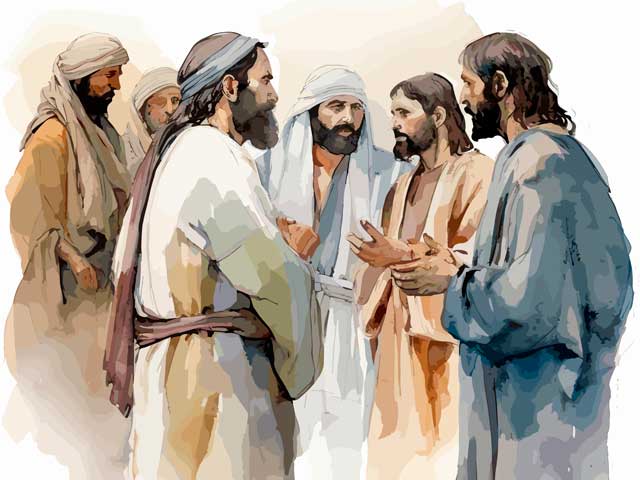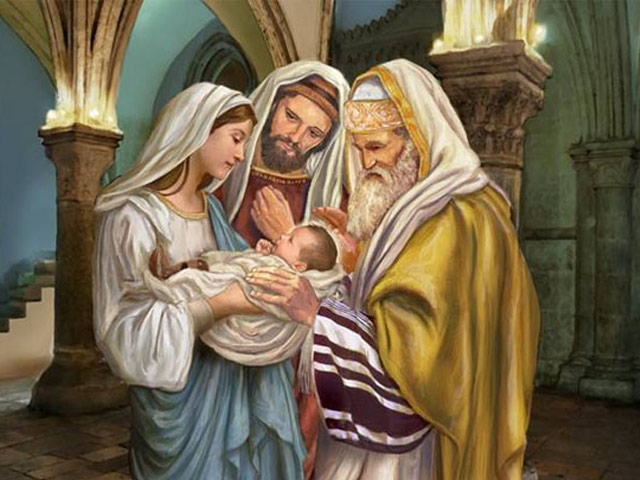Daily Readings Audio | Daily Meditation | March 2, 2021 – March 7, 2021
March 2, 2021
Nghe các bài đọc Anh Ngữ tại đây ⇒ LISTEN PODCAST
Tuesday of the Second Week of Lent
Lectionary: 231
DAILY MEDITATION
by Daily reading & meditation website
Nghe đọc, Click vào đây
Isaiah instructs Israel to cease doing evil and learn to do good. God will set things right, forgiving their sins, if they correct their behaviors and make justice [their] aim. Jesus exhorts the crowds not to follow the example of the scribes and Pharisees, for they preach but they do not practice.
Strive to avoid hypocrisy and embrace humility. In today’s readings, both Isaiah and Jesus denounce hypocrisy. Those in positions of power are called not to place burdens on others, but to relieve them. During Lent, we are given the opportunity to examine our own interior dispositions and make sure they align with the Lord’s will. All the fasting, prayer, and almsgiving in the world cannot outweigh pride. Let us pray for all members of the Church may be strengthened by the Holy Spirit, growing in the virtues of justice and humility. Amen.
Reading I
Hear the word of the LORD,
princes of Sodom!
Listen to the instruction of our God,
people of Gomorrah!
Wash yourselves clean!
Put away your misdeeds from before my eyes;
cease doing evil; learn to do good.
Make justice your aim: redress the wronged,
hear the orphan’s plea, defend the widow.
Come now, let us set things right,
says the LORD:
Though your sins be like scarlet,
they may become white as snow;
Though they be crimson red,
they may become white as wool.
If you are willing, and obey,
you shall eat the good things of the land;
But if you refuse and resist,
the sword shall consume you:
for the mouth of the LORD has spoken!
Responsorial Psalm
R. (23b) To the upright I will show the saving power of God.
“Not for your sacrifices do I rebuke you,
for your burnt offerings are before me always.
I take from your house no bullock,
no goats out of your fold.”
R. To the upright I will show the saving power of God.
“Why do you recite my statutes,
and profess my covenant with your mouth,
Though you hate discipline
and cast my words behind you?”
R. To the upright I will show the saving power of God.
“When you do these things, shall I be deaf to it?
Or do you think that I am like yourself?
I will correct you by drawing them up before your eyes.
He that offers praise as a sacrifice glorifies me;
and to him that goes the right way I will show the salvation of God.”
R. To the upright I will show the saving power of God.
Verse before the Gospel
Cast away from you all the crimes you have committed, says the LORD,
and make for yourselves a new heart and a new spirit.
Gospel
Jesus spoke to the crowds and to his disciples, saying,
“The scribes and the Pharisees
have taken their seat on the chair of Moses.
Therefore, do and observe all things whatsoever they tell you,
but do not follow their example.
For they preach but they do not practice.
They tie up heavy burdens hard to carry
and lay them on people’s shoulders,
but they will not lift a finger to move them.
All their works are performed to be seen.
They widen their phylacteries and lengthen their tassels.
They love places of honor at banquets, seats of honor in synagogues,
greetings in marketplaces, and the salutation ‘Rabbi.’
As for you, do not be called ‘Rabbi.’
You have but one teacher, and you are all brothers.
Call no one on earth your father;
you have but one Father in heaven.
Do not be called ‘Master’;
you have but one master, the Christ.
The greatest among you must be your servant.
Whoever exalts himself will be humbled;
but whoever humbles himself will be exalted.”
March 3, 2021
Nghe các bài đọc Anh Ngữ tại đây ⇒ LISTEN PODCAST
Wednesday of the Second Week of Lent
Lectionary: 232
DAILY MEDITATION
by Daily reading & meditation website
Nghe đọc, Click vào đây
Jeremiah laments as he faces hardship from his adversaries. He seeks help and refuge in the Lord. In today’s Gospel, Jesus tells the Twelve of his impending condemnation and execution in Jerusalem. He then describes the suffering that comes with the path of following him.
Whoever wishes to be great among you shall be your servant. Our readings today tell us about the trials of discipleship. Jesus reveals that the path he will take, the path all of us are called to follow, is not easy or glorious. It is full of adversity. These challenges are also described in Jeremiah’s lament. What hardships do we face as part of our discipleship today? Let us pray for the Church and her work in preaching the Gospel to all nations, may the Lord raise up men and women with fortitude and zeal for evangelization. Amen.
Reading I
The people of Judah and the citizens of Jerusalem said,
“Come, let us contrive a plot against Jeremiah.
It will not mean the loss of instruction from the priests,
nor of counsel from the wise, nor of messages from the prophets.
And so, let us destroy him by his own tongue;
let us carefully note his every word.”
Heed me, O LORD,
and listen to what my adversaries say.
Must good be repaid with evil
that they should dig a pit to take my life?
Remember that I stood before you
to speak in their behalf,
to turn away your wrath from them.
Responsorial Psalm
R. (17b) Save me, O Lord, in your kindness.
You will free me from the snare they set for me,
for you are my refuge.
Into your hands I commend my spirit;
you will redeem me, O LORD, O faithful God.
R. Save me, O Lord, in your kindness.
I hear the whispers of the crowd, that frighten me from every side,
as they consult together against me, plotting to take my life.
R. Save me, O Lord, in your kindness.
But my trust is in you, O LORD;
I say, “You are my God.”
In your hands is my destiny; rescue me
from the clutches of my enemies and my persecutors.
R. Save me, O Lord, in your kindness.
Verse before the Gospel
I am the light of the world, says the Lord;
whoever follows me will have the light of life.
Gospel
As Jesus was going up to Jerusalem,
he took the Twelve disciples aside by themselves,
and said to them on the way,
“Behold, we are going up to Jerusalem,
and the Son of Man will be handed over to the chief priests
and the scribes,
and they will condemn him to death,
and hand him over to the Gentiles
to be mocked and scourged and crucified,
and he will be raised on the third day.”
Then the mother of the sons of Zebedee approached Jesus with her sons
and did him homage, wishing to ask him for something.
He said to her, “What do you wish?”
She answered him,
“Command that these two sons of mine sit,
one at your right and the other at your left, in your kingdom.”
Jesus said in reply,
“You do not know what you are asking.
Can you drink the chalice that I am going to drink?”
They said to him, “We can.”
He replied,
“My chalice you will indeed drink,
but to sit at my right and at my left,
this is not mine to give
but is for those for whom it has been prepared by my Father.”
When the ten heard this,
they became indignant at the two brothers.
But Jesus summoned them and said,
“You know that the rulers of the Gentiles lord it over them,
and the great ones make their authority over them felt.
But it shall not be so among you.
Rather, whoever wishes to be great among you shall be your servant;
whoever wishes to be first among you shall be your slave.
Just so, the Son of Man did not come to be served but to serve
and to give his life as a ransom for many.”
- Readings for the Optional Memorial of Saint Katharine Drexel, virgin [In the Dioceses of the United States]
March 4, 2021
Nghe các bài đọc Anh Ngữ tại đây ⇒ LISTEN PODCAST
Thursday of the Second Week of Lent
Lectionary: 233
DAILY MEDITATION
by Daily reading & meditation website
Nghe đọc, Click vào đây
In the first reading, the Lord contrasts those who hope in the world with those who hope in him. The former is like a dried- up shrub in the desert, the latter a thriving tree planted near a stream. In the Gospel, Jesus tells the Pharisees about a rich man who lived in luxury, at whose door sat a poor beggar named Lazarus. Both men died and the rich man was condemned, while Lazarus was saved.
Trusting in the things of this world brings death, but trusting in God brings salvation. Today’s readings give lessons in contrast. The one who trusts in earthly things, such as the rich man in the Gospel, dries up and dies. Such a person is cut off from all happiness. The rich man, like the barren shrub, thirsts for even a little water. The one who trusts in God, however, finds abundant life even in hard times. Let us pray for that the Lord may look graciously upon all members of the Church as we proclaim the Good News. Amen.
Reading I
Thus says the LORD:
Cursed is the man who trusts in human beings,
who seeks his strength in flesh,
whose heart turns away from the LORD.
He is like a barren bush in the desert
that enjoys no change of season,
But stands in a lava waste,
a salt and empty earth.
Blessed is the man who trusts in the LORD,
whose hope is the LORD.
He is like a tree planted beside the waters
that stretches out its roots to the stream:
It fears not the heat when it comes,
its leaves stay green;
In the year of drought it shows no distress,
but still bears fruit.
More tortuous than all else is the human heart,
beyond remedy; who can understand it?
I, the LORD, alone probe the mind
and test the heart,
To reward everyone according to his ways,
according to the merit of his deeds.
Responsorial Psalm
R. (40:5a) Blessed are they who hope in the Lord.
Blessed the man who follows not
the counsel of the wicked
Nor walks in the way of sinners,
nor sits in the company of the insolent,
But delights in the law of the LORD
and meditates on his law day and night.
R. Blessed are they who hope in the Lord.
He is like a tree
planted near running water,
That yields its fruit in due season,
and whose leaves never fade.
Whatever he does, prospers.
R. Blessed are they who hope in the Lord.
Not so, the wicked, not so;
they are like chaff which the wind drives away.
For the LORD watches over the way of the just,
but the way of the wicked vanishes.
R. Blessed are they who hope in the Lord.
Verse before the Gospel
Blessed are they who have kept the word with a generous heart
and yield a harvest through perseverance.
Gospel
Jesus said to the Pharisees:
“There was a rich man who dressed in purple garments and fine linen
and dined sumptuously each day.
And lying at his door was a poor man named Lazarus, covered with sores,
who would gladly have eaten his fill of the scraps
that fell from the rich man’s table.
Dogs even used to come and lick his sores.
When the poor man died,
he was carried away by angels to the bosom of Abraham.
The rich man also died and was buried,
and from the netherworld, where he was in torment,
he raised his eyes and saw Abraham far off
and Lazarus at his side.
And he cried out, ‘Father Abraham, have pity on me.
Send Lazarus to dip the tip of his finger in water and cool my tongue,
for I am suffering torment in these flames.’
Abraham replied, ‘My child,
remember that you received what was good during your lifetime
while Lazarus likewise received what was bad;
but now he is comforted here, whereas you are tormented.
Moreover, between us and you a great chasm is established
to prevent anyone from crossing
who might wish to go from our side to yours
or from your side to ours.’
He said, ‘Then I beg you, father, send him
to my father’s house,
for I have five brothers, so that he may warn them,
lest they too come to this place of torment.’
But Abraham replied, ‘They have Moses and the prophets.
Let them listen to them.’
He said, ‘Oh no, father Abraham,
but if someone from the dead goes to them, they will repent.’
Then Abraham said,
‘If they will not listen to Moses and the prophets,
neither will they be persuaded
if someone should rise from the dead.’”

- Readings for the Optional Memorial of Saint Casimir
March 5, 2021
Nghe các bài đọc Anh Ngữ tại đây ⇒ LISTEN PODCAST
Friday of the Second Week of Lent
Lectionary: 234
DAILY MEDITATION
by Daily reading & meditation website
Nghe đọc, Click vào đây
In the first reading, Jacob sends his favorite son, Joseph, to catch up to his brothers. As Joseph approaches, his brothers plot to kill him, but end up selling him into slavery instead. In the Gospel, Jesus tells a parable to the chief priests and elders about a vineyard owner whose rebellious tenants kill his servants and even his son and heir.
The stone that the builders rejected has become the cornerstone. Both readings today have envious people, with power, plotting against the righteous. But God upholds the righteous. For Joseph, sold into slavery by His jealous brothers, will one day hold the fate of these same brothers in his hands. And he reconciles with them. Jesus, God’s only Son, is sent by the Father. He is the stone that the builders rejected [who] has become the cornerstone. His vindication is our redemption. Let us pray for the Gospel message of peace and blessing may direct the actions of world leaders. Amen.
Reading I
Israel loved Joseph best of all his sons,
for he was the child of his old age;
and he had made him a long tunic.
When his brothers saw that their father loved him best of all his sons,
they hated him so much that they would not even greet him.
One day, when his brothers had gone
to pasture their father’s flocks at Shechem,
Israel said to Joseph,
“Your brothers, you know, are tending our flocks at Shechem.
Get ready; I will send you to them.”
So Joseph went after his brothers and caught up with them in Dothan.
They noticed him from a distance,
and before he came up to them, they plotted to kill him.
They said to one another: “Here comes that master dreamer!
Come on, let us kill him and throw him into one of the cisterns here;
we could say that a wild beast devoured him.
We shall then see what comes of his dreams.”
When Reuben heard this,
he tried to save him from their hands, saying,
“We must not take his life.
Instead of shedding blood,” he continued,
“just throw him into that cistern there in the desert;
but do not kill him outright.”
His purpose was to rescue him from their hands
and return him to his father.
So when Joseph came up to them,
they stripped him of the long tunic he had on;
then they took him and threw him into the cistern,
which was empty and dry.
They then sat down to their meal.
Looking up, they saw a caravan of Ishmaelites coming from Gilead,
their camels laden with gum, balm and resin
to be taken down to Egypt.
Judah said to his brothers:
“What is to be gained by killing our brother and concealing his blood?
Rather, let us sell him to these Ishmaelites,
instead of doing away with him ourselves.
After all, he is our brother, our own flesh.”
His brothers agreed.
They sold Joseph to the Ishmaelites for twenty pieces of silver.
Responsorial Psalm
R. (5a) Remember the marvels the Lord has done.
When the LORD called down a famine on the land
and ruined the crop that sustained them,
He sent a man before them,
Joseph, sold as a slave.
R. Remember the marvels the Lord has done.
They had weighed him down with fetters,
and he was bound with chains,
Till his prediction came to pass
and the word of the LORD proved him true.
R. Remember the marvels the Lord has done.
The king sent and released him,
the ruler of the peoples set him free.
He made him lord of his house
and ruler of all his possessions.
R. Remember the marvels the Lord has done.
Verse before the Gospel
God so loved the world that he gave his only-begotten Son;
so that everyone who believes in him might have eternal life.
Gospel
Jesus said to the chief priests and the elders of the people:
“Hear another parable.
There was a landowner who planted a vineyard,
put a hedge around it,
dug a wine press in it, and built a tower.
Then he leased it to tenants and went on a journey.
When vintage time drew near,
he sent his servants to the tenants to obtain his produce.
But the tenants seized the servants and one they beat,
another they killed, and a third they stoned.
Again he sent other servants, more numerous than the first ones,
but they treated them in the same way.
Finally, he sent his son to them,
thinking, ‘They will respect my son.’
But when the tenants saw the son, they said to one another,
‘This is the heir.
Come, let us kill him and acquire his inheritance.’
They seized him, threw him out of the vineyard, and killed him.
What will the owner of the vineyard do to those tenants when he comes?”
They answered him,
“He will put those wretched men to a wretched death
and lease his vineyard to other tenants
who will give him the produce at the proper times.”
Jesus said to them, “Did you never read in the Scriptures:
The stone that the builders rejected
has become the cornerstone;
by the Lord has this been done,
and it is wonderful in our eyes?
Therefore, I say to you,
the Kingdom of God will be taken away from you
and given to a people that will produce its fruit.”
When the chief priests and the Pharisees heard his parables,
they knew that he was speaking about them.
And although they were attempting to arrest him,
they feared the crowds, for they regarded him as a prophet.
March 6, 2021
Nghe các bài đọc Anh Ngữ tại đây ⇒ LISTEN PODCAST
Saturday of the Second Week of Lent
Lectionary: 235
DAILY MEDITATION
by Daily reading & meditation website
Nghe đọc, Click vào đây
In the first reading, the prophet Micah speaks of a merciful God. God is like no other god: he does not stay angry but delights in clemency, and casts all sin into the depths of the sea. In the Gospel Jesus tells a parable of a man with two sons, the younger of whom goes out and squander[s] his inheritance, but returns to the loving embrace of his father.
There is no god like our God, the God of endless mercy. Mercy is a concept that seems to be on the wane in our society. Power and winning at all costs are the battle cry in today’s world, and mercy is considered weak. God, however, is more than willing to extend his limitless mercy to us. Even if we turn away from him, he will welcome us back into his arms – as long as we repent, and ask for his forgiveness. Let us pray for all who have died marked with the sign of faith, may they soon be brought to everlasting peace. Amen.
Reading I
Shepherd your people with your staff,
the flock of your inheritance,
That dwells apart in a woodland,
in the midst of Carmel.
Let them feed in Bashan and Gilead,
as in the days of old;
As in the days when you came from the land of Egypt,
show us wonderful signs.
Who is there like you, the God who removes guilt
and pardons sin for the remnant of his inheritance;
Who does not persist in anger forever,
but delights rather in clemency,
And will again have compassion on us,
treading underfoot our guilt?
You will cast into the depths of the sea all our sins;
You will show faithfulness to Jacob,
and grace to Abraham,
As you have sworn to our fathers
from days of old.
Responsorial Psalm
R. (8a) The Lord is kind and merciful.
Bless the LORD, O my soul;
and all my being, bless his holy name.
Bless the LORD, O my soul,
and forget not all his benefits.
R. The Lord is kind and merciful.
He pardons all your iniquities,
he heals all your ills.
He redeems your life from destruction,
he crowns you with kindness and compassion.
R. The Lord is kind and merciful.
He will not always chide,
nor does he keep his wrath forever.
Not according to our sins does he deal with us,
nor does he requite us according to our crimes.
R. The Lord is kind and merciful.
For as the heavens are high above the earth,
so surpassing is his kindness toward those who fear him.
As far as the east is from the west,
so far has he put our transgressions from us.
R. The Lord is kind and merciful.
Verse before the Gospel
I will get up and go to my father and shall say to him,
Father, I have sinned against heaven and against you.
Gospel
Tax collectors and sinners were all drawing near to listen to Jesus,
but the Pharisees and scribes began to complain, saying,
“This man welcomes sinners and eats with them.”
So to them Jesus addressed this parable.
“A man had two sons, and the younger son said to his father,
‘Father, give me the share of your estate that should come to me.’
So the father divided the property between them.
After a few days, the younger son collected all his belongings
and set off to a distant country
where he squandered his inheritance on a life of dissipation.
When he had freely spent everything,
a severe famine struck that country,
and he found himself in dire need.
So he hired himself out to one of the local citizens
who sent him to his farm to tend the swine.
And he longed to eat his fill of the pods on which the swine fed,
but nobody gave him any.
Coming to his senses he thought,
‘How many of my father’s hired workers
have more than enough food to eat,
but here am I, dying from hunger.
I shall get up and go to my father and I shall say to him,
“Father, I have sinned against heaven and against you.
I no longer deserve to be called your son;
treat me as you would treat one of your hired workers.”’
So he got up and went back to his father.
While he was still a long way off,
his father caught sight of him, and was filled with compassion.
He ran to his son, embraced him and kissed him.
His son said to him,
‘Father, I have sinned against heaven and against you;
I no longer deserve to be called your son.’
But his father ordered his servants,
‘Quickly, bring the finest robe and put it on him;
put a ring on his finger and sandals on his feet.
Take the fattened calf and slaughter it.
Then let us celebrate with a feast,
because this son of mine was dead, and has come to life again;
he was lost, and has been found.’
Then the celebration began.
Now the older son had been out in the field
and, on his way back, as he neared the house,
he heard the sound of music and dancing.
He called one of the servants and asked what this might mean.
The servant said to him,
‘Your brother has returned
and your father has slaughtered the fattened calf
because he has him back safe and sound.’
He became angry,
and when he refused to enter the house,
his father came out and pleaded with him.
He said to his father in reply,
‘Look, all these years I served you
and not once did I disobey your orders;
yet you never gave me even a young goat to feast on with my friends.
But when your son returns
who swallowed up your property with prostitutes,
for him you slaughter the fattened calf.’
He said to him,
‘My son, you are here with me always;
everything I have is yours.
But now we must celebrate and rejoice,
because your brother was dead and has come to life again;
he was lost and has been found.’”
March 7, 2021
Readings for the Third Sunday of Lent
Nghe các bài đọc Anh Ngữ tại đây ⇒ LISTEN PODCAST
Third Sunday of Lent | Year B
Lectionary: 29

DAILY MEDITATION
by Daily reading & meditation website
Nghe đọc, Click vào đây
God gives the Israelites his commandments, saying he will punish those who do not follow them but grant mercy to those who do. Saint Paul writes the Corinthians, we proclaim Christ crucified, which is foolishness to those who do not believe, but power and wisdom to those who do. In the Gospel, Jesus drives money-changers and vendors from the temple area, and then tells the crowd that if the temple is destroyed he will raise it in three days.
Eliminate what distracts us from God. The first of God’s commandments – that he alone is God and we shall not have other gods or idols – reaches beyond simply “not offering sacrifices to pagan deities.” Rather, it includes avoiding anything that we “rank above” God or that prevents us from worshipping him. The importance of this commandment is seen in the way Jesus reacts against those who have made commerce – selling animals and changing money – their gods, their idols. Let us pray that the Gospel message of peace and blessing may direct the actions of world leaders. Amen.
Reading I
In those days, God delivered all these commandments:
“I, the LORD, am your God,
who brought you out of the land of Egypt, that place of slavery.
You shall not have other gods besides me.
You shall not carve idols for yourselves
in the shape of anything in the sky above
or on the earth below or in the waters beneath the earth;
you shall not bow down before them or worship them.
For I, the LORD, your God, am a jealous God,
inflicting punishment for their fathers’ wickedness
on the children of those who hate me,
down to the third and fourth generation;
but bestowing mercy down to the thousandth generation
on the children of those who love me and keep my commandments.
“You shall not take the name of the LORD, your God, in vain.
For the LORD will not leave unpunished
the one who takes his name in vain.
“Remember to keep holy the sabbath day.
Six days you may labor and do all your work,
but the seventh day is the sabbath of the LORD, your God.
No work may be done then either by you, or your son or daughter,
or your male or female slave, or your beast,
or by the alien who lives with you.
In six days the LORD made the heavens and the earth,
the sea and all that is in them;
but on the seventh day he rested.
That is why the LORD has blessed the sabbath day and made it holy.
“Honor your father and your mother,
that you may have a long life in the land
which the LORD, your God, is giving you.
You shall not kill.
You shall not commit adultery.
You shall not steal.
You shall not bear false witness against your neighbor.
You shall not covet your neighbor’s house.
You shall not covet your neighbor’s wife,
nor his male or female slave, nor his ox or ass,
nor anything else that belongs to him.”
OR:
In those days, God delivered all these commandments:
“I, the LORD am your God,
who brought you out of the land of Egypt, that place of slavery.
You shall not have other gods besides me.
“You shall not take the name of the LORD, your God, in vain.
For the LORD will not leave unpunished
the one who takes his name in vain.
“Remember to keep holy the sabbath day.
Honor your father and your mother,
that you may have a long life in the land
which the Lord, your God, is giving you.
You shall not kill.
You shall not commit adultery.
You shall not steal.
You shall not bear false witness against your neighbor.
You shall not covet your neighbor’s house.
You shall not covet your neighbor’s wife,
nor his male or female slave, nor his ox or ass,
nor anything else that belongs to him.”
Responsorial Psalm
R. (John 6:68c) Lord, you have the words of everlasting life.
The law of the LORD is perfect,
refreshing the soul;
The decree of the LORD is trustworthy,
giving wisdom to the simple.
R. Lord, you have the words of everlasting life.
The precepts of the LORD are right,
rejoicing the heart;
the command of the LORD is clear,
enlightening the eye.
R. Lord, you have the words of everlasting life.
The fear of the LORD is pure,
enduring forever;
the ordinances of the LORD are true,
all of them just.
R. Lord, you have the words of everlasting life.
They are more precious than gold,
than a heap of purest gold;
sweeter also than syrup
or honey from the comb.
R. Lord, you have the words of everlasting life.
Reading II
Brothers and sisters:
Jews demand signs and Greeks look for wisdom,
but we proclaim Christ crucified,
a stumbling block to Jews and foolishness to Gentiles,
but to those who are called, Jews and Greeks alike,
Christ the power of God and the wisdom of God.
For the foolishness of God is wiser than human wisdom,
and the weakness of God is stronger than human strength.
Verse Before the Gospel
God so loved the world that he gave his only Son,
so that everyone who believes in him might have eternal life.
Gospel
Since the Passover of the Jews was near,
Jesus went up to Jerusalem.
He found in the temple area those who sold oxen, sheep, and doves,
as well as the money changers seated there.
He made a whip out of cords
and drove them all out of the temple area, with the sheep and oxen,
and spilled the coins of the money changers
and overturned their tables,
and to those who sold doves he said,
“Take these out of here,
and stop making my Father’s house a marketplace.”
His disciples recalled the words of Scripture,
Zeal for your house will consume me.
At this the Jews answered and said to him,
“What sign can you show us for doing this?”
Jesus answered and said to them,
“Destroy this temple and in three days I will raise it up.”
The Jews said,
“This temple has been under construction for forty-six years,
and you will raise it up in three days?”
But he was speaking about the temple of his body.
Therefore, when he was raised from the dead,
his disciples remembered that he had said this,
and they came to believe the Scripture
and the word Jesus had spoken.
While he was in Jerusalem for the feast of Passover,
many began to believe in his name
when they saw the signs he was doing.
But Jesus would not trust himself to them because he knew them all,
and did not need anyone to testify about human nature.
He himself understood it well.









